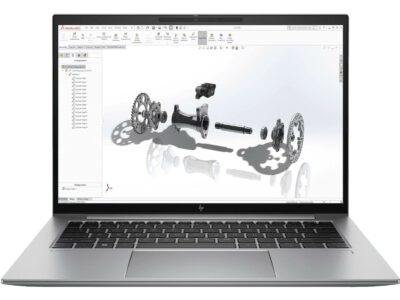In the ever-evolving landscape of data science, having the right tools is paramount to unlocking analytical excellence. One such crucial tool is the laptop, the gateway to a world of data exploration and modeling. As data scientists, analysts, and enthusiasts, we understand the unique demands this work entails. This article delves into the essential features that make a laptop ideal for data science, ensuring you’re equipped to tackle the complexities of the field efficiently.
Before we dive into the specifics, let’s understand why the choice of a laptop is pivotal in the realm of data science. Laptops serve as our command centers, where algorithms are crafted, models are trained, and insights are extracted. The right laptop can significantly enhance productivity, allowing for seamless coding, testing, and visualization of data.
Now let us look into the most important features to look for in a laptop for data science:
1. Processing Power: The Core of Analytical Prowess
At the heart of every data-driven task lies the processing power of a laptop. Opting for a laptop equipped with a robust processor ensures the swift execution of complex algorithms. Processors like Intel® Core™ i7 are renowned for their multitasking capabilities, and stand out as prime choices. These processors empower data scientists to handle massive datasets and intricate computations with ease.
2. Ample RAM for Seamless Multitasking
In the world of data science, multitasking is inevitable. Analyzing data, running simulations, and fine-tuning models simultaneously demand a laptop with substantial RAM. Aim for a device with at least 16GB of RAM, providing the headroom needed for resource-intensive tasks without compromising performance.
3. Storage Solutions Tailored for Data
Data scientists deal with voluminous datasets, requiring substantial storage. Opt for laptops with SSDs (Solid State Drives), as they offer faster data access and retrieval times compared to traditional HDDs. SSDs contribute to a smoother workflow, especially when handling large datasets in applications like Python, R, or Jupyter Notebooks.
4. Dedicated Graphics for Visualization Prowess
Effective data analysis often involves intricate visualization. A dedicated graphics card, such as the NVIDIA GeForce GTX™ series, accelerates data visualization tasks. This is crucial for rendering complex graphs, charts, and 3D models, providing a comprehensive view of the data at hand.
5. Display Quality: A Visual Feast for Analysts
The display of a laptop is the canvas on which data scientists paint their insights. Opt for a laptop with a high-resolution display (at least 1920×1080) and vibrant colors. A larger screen size, around 15 inches or more, enhances the visual experience, making it easier to discern patterns and anomalies in your data.
6. Long-lasting Battery Life: Sustaining Analytical Momentum
Uninterrupted analytical workflows are contingent on a laptop’s battery life. Choose a laptop that boasts long-lasting battery performance, ideally lasting a full workday on a single charge. This ensures you can delve into your data without being tethered to a power source, fostering flexibility and productivity.
7. Portable Design: Analyze Anytime, Anywhere
Data science is not confined to a desk. Opt for a laptop with a lightweight and portable design, allowing you to analyze data on the go. Whether you’re at a coffee shop, a client meeting, or your home office, a portable laptop ensures you’re always ready to dive into the world of analytics.
8. Connectivity: Seamless Integration into Data Ecosystems
Efficient data science often involves collaboration and integration with various tools and devices. Ensure your laptop is equipped with a diverse range of ports, including USB, HDMI, and Thunderbolt ports. This facilitates seamless connectivity to external devices, monitors, and data storage solutions.
9. Cooling Mechanisms: Sustaining Performance Under Pressure
Data-intensive tasks generate heat, and a laptop equipped with effective cooling mechanisms ensures sustained performance. Look for laptops with advanced cooling systems, such as dual-fan setups or liquid cooling, to prevent overheating during prolonged analytical sessions.
10. Keyboard and Ergonomics: Comfort in Coding
For data scientists, coding is a fundamental aspect of the job. A comfortable and responsive keyboard is crucial for extended coding sessions. Consider laptops with ergonomically designed keyboards, providing a tactile and efficient typing experience. Backlit keyboards are a bonus, aiding productivity in low-light environments.
Conclusion
In conclusion, the quest for the ideal laptop for data science is an integral part of empowering your analytical odyssey. Investing in a laptop that aligns with the unique demands of data science ensures you can navigate the complexities of the field with ease. From processing power to ergonomic design, each feature plays a vital role in enhancing your efficiency and effectiveness as a data scientist. Choose wisely, and let your laptop be the catalyst that propels your analytical excellence to new heights.
When it comes to recommending the ideal laptop, it is noteworthy that HP offers a range of laptops that cater to the specific needs of data science professionals, providing excellent processing power, graphics performance, and reliable build quality. Consider the recommended HP ZBook Firefly G10 Mobile Workstation PC as a reliable option that combines performance, portability, and durability for your data science needs. The HP ZBook Firefly G10 is a powerful and lightweight mobile workstation designed for data science professionals. It offers exceptional performance and portability, making it an ideal choice for demanding tasks on the go.
Compare and view all the Laptops For Data Science under 1 lakh





















